In German, there is the present tense Präsens, which is used to express actions happening at the current moment. However, the role of Präsens in German is not limited to that. In this article, we will discuss everything you need to know about this tense.
As already mentioned, the main function of Präsens is to express actions that are happening right now.
Im Moment höre ich mir Musik an. - Right now I'm listening to music.
Präsens is also used when we talk about actions that happen regularly:
Ich trinke Kaffee jeden Morgen. - I drink coffee every morning.
We also use this tense when talking about something permanent:
Wien ist die Hauptstadt des Österreichs. - Vienna is the capital of Austria.
Präsens is also used to express future actions:
Morgen fahren wir zum Arzt. - Tomorrow we are going to the doctor.
So, let’s look at how Präsens is formed in German.
The forms of the present tense Präsens are built by adding personal endings to the stem of the infinitive form of the verb. As you probably already know, the verb stem is everything in the verb except the infinitive ending -en. For example, for the verb malen, the stem is mal-.
The system of personal endings in Präsens is the same for weak, strong, and mixed verbs:
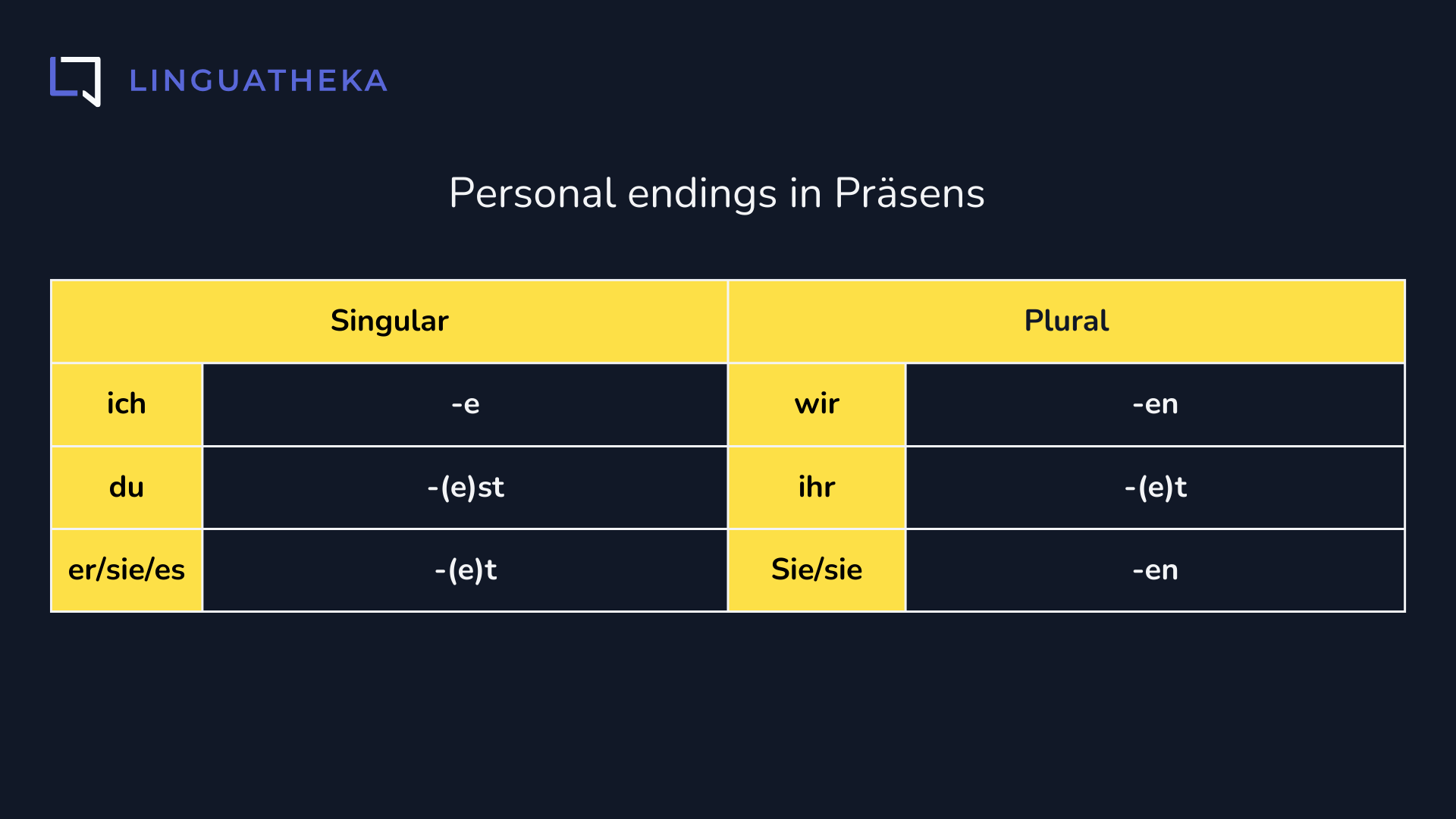
Let’s take the verb machen as an example.
Ich mache eine grammatische Übung.
Machst du eine grammatische Übung?
Er macht aber keine grammatische Übung!
Wir machen gern grammatische Übungen!
Ihr macht eine grammatische Übung, oder?
Sie machen eine grammatische Übung.
What should be noted?
Wir kaufen eine Flasche Wasser. - We are buying a bottle of water.
Sie kaufen eine Flasche Wasser. - They are buying a bottle of water.
Bescheidenheit kleidet Jedermann. - Modesty adorns everyone.
Er mietet eine Wohnung. - He is renting an apartment.
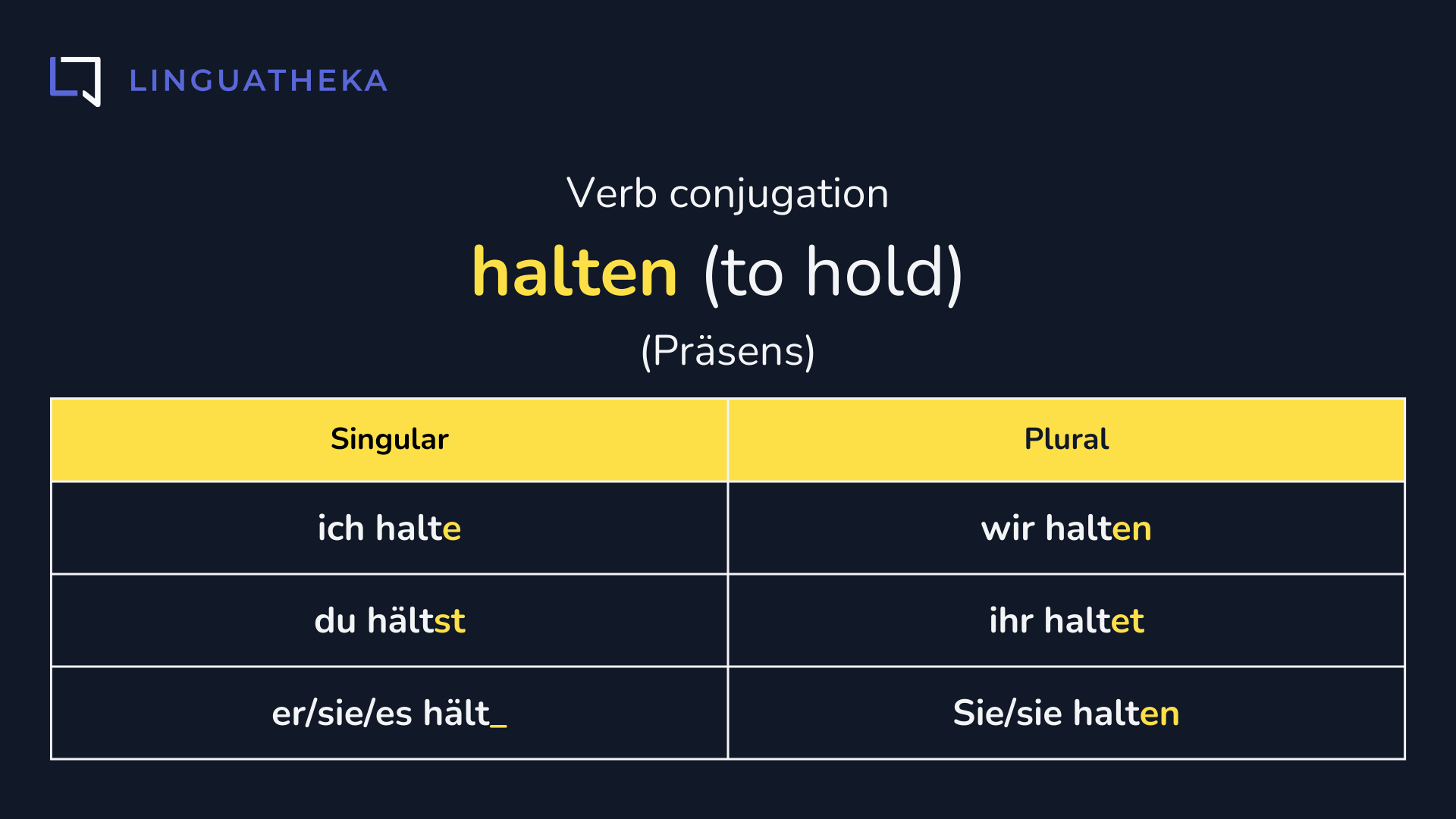
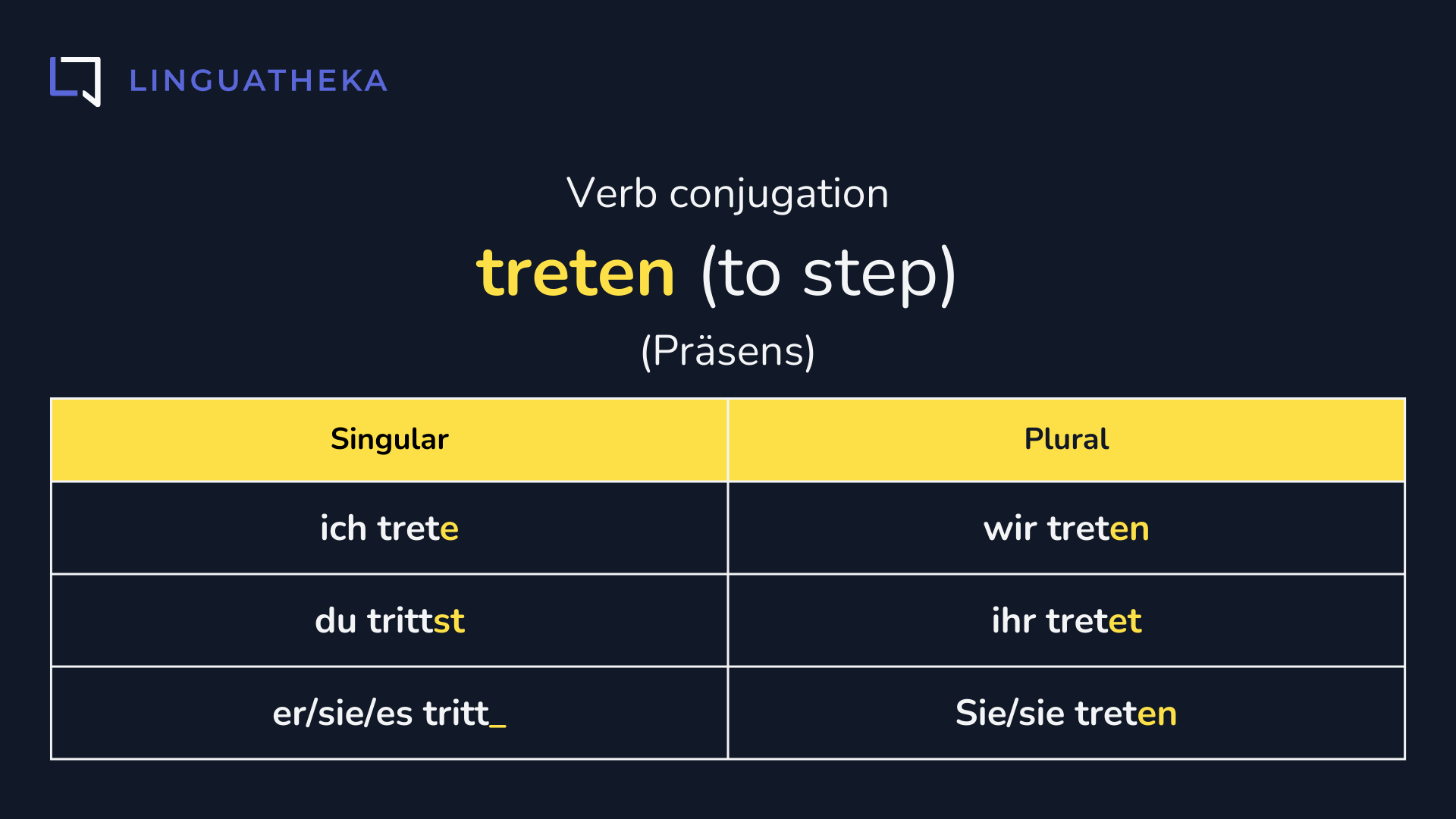
Fährst du mit dem Auto oder mit dem Bus? - Are you going by car or by bus?
But!!!
Wenn du fertig bist, heb die Hand. - When you're ready, raise your hand.
Reist du gern? - Do you like to travel?
Ich mache das Licht aus! - I turn off the light!
Kommst du mit? - Are you coming along?
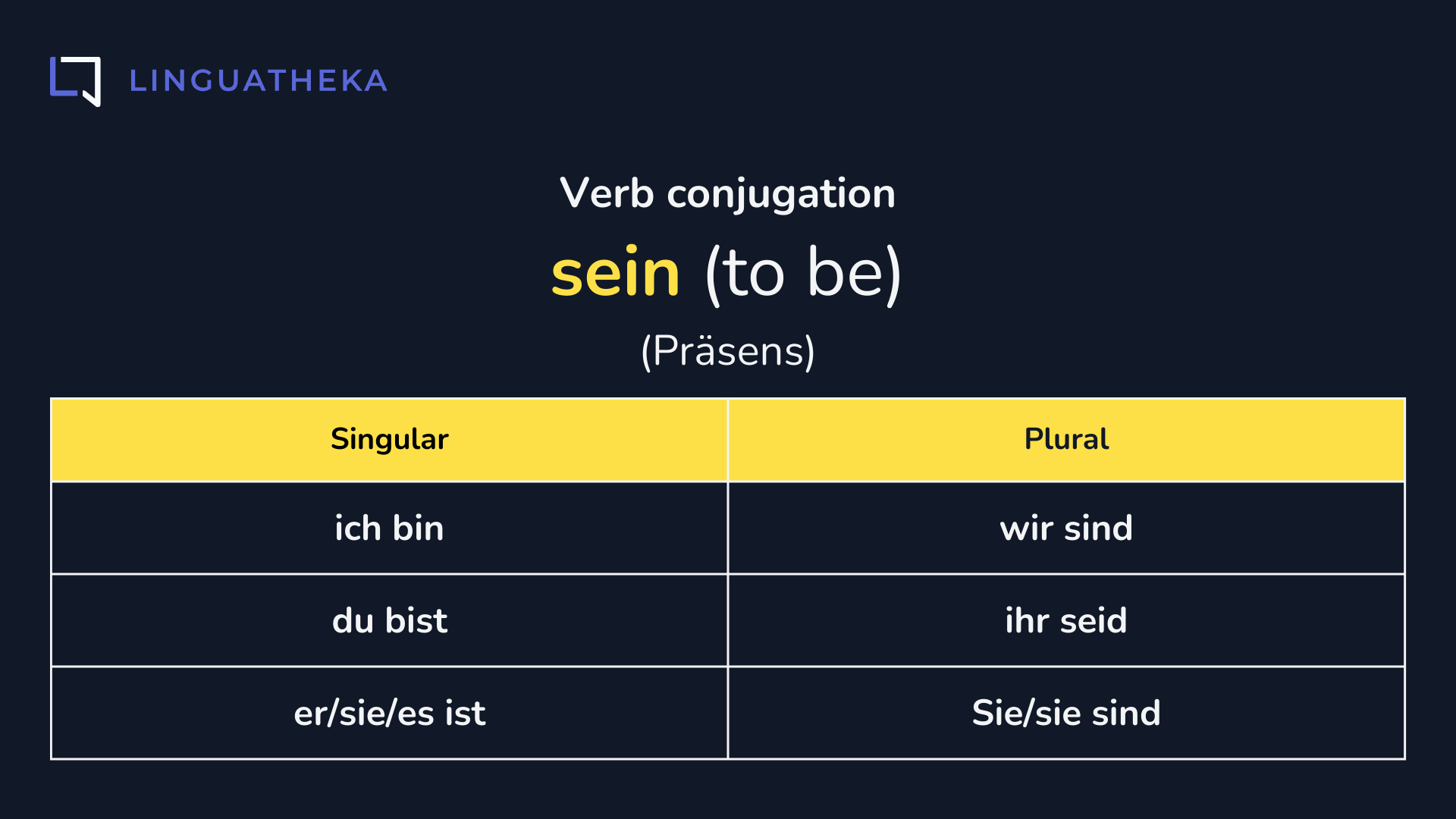
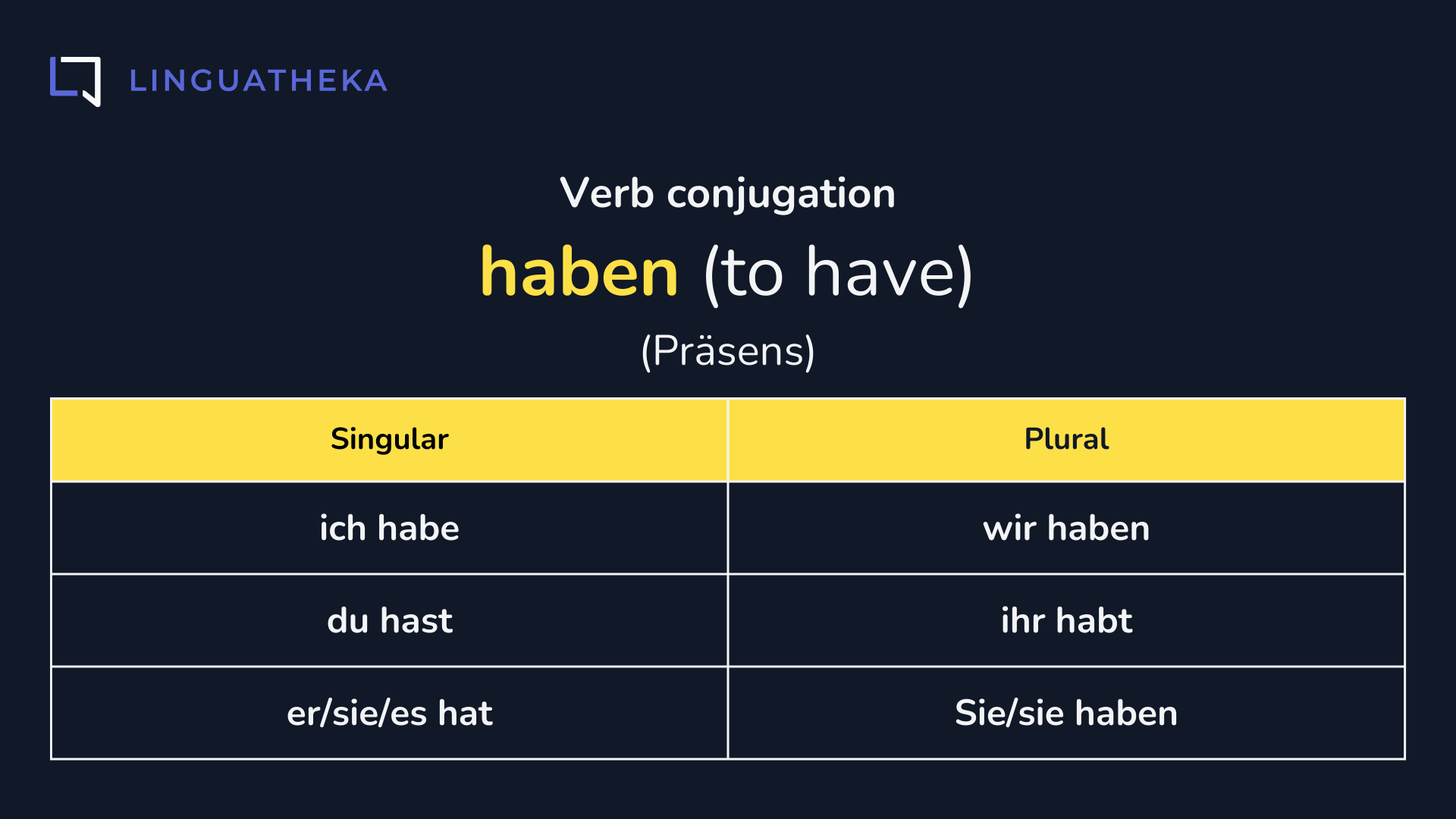
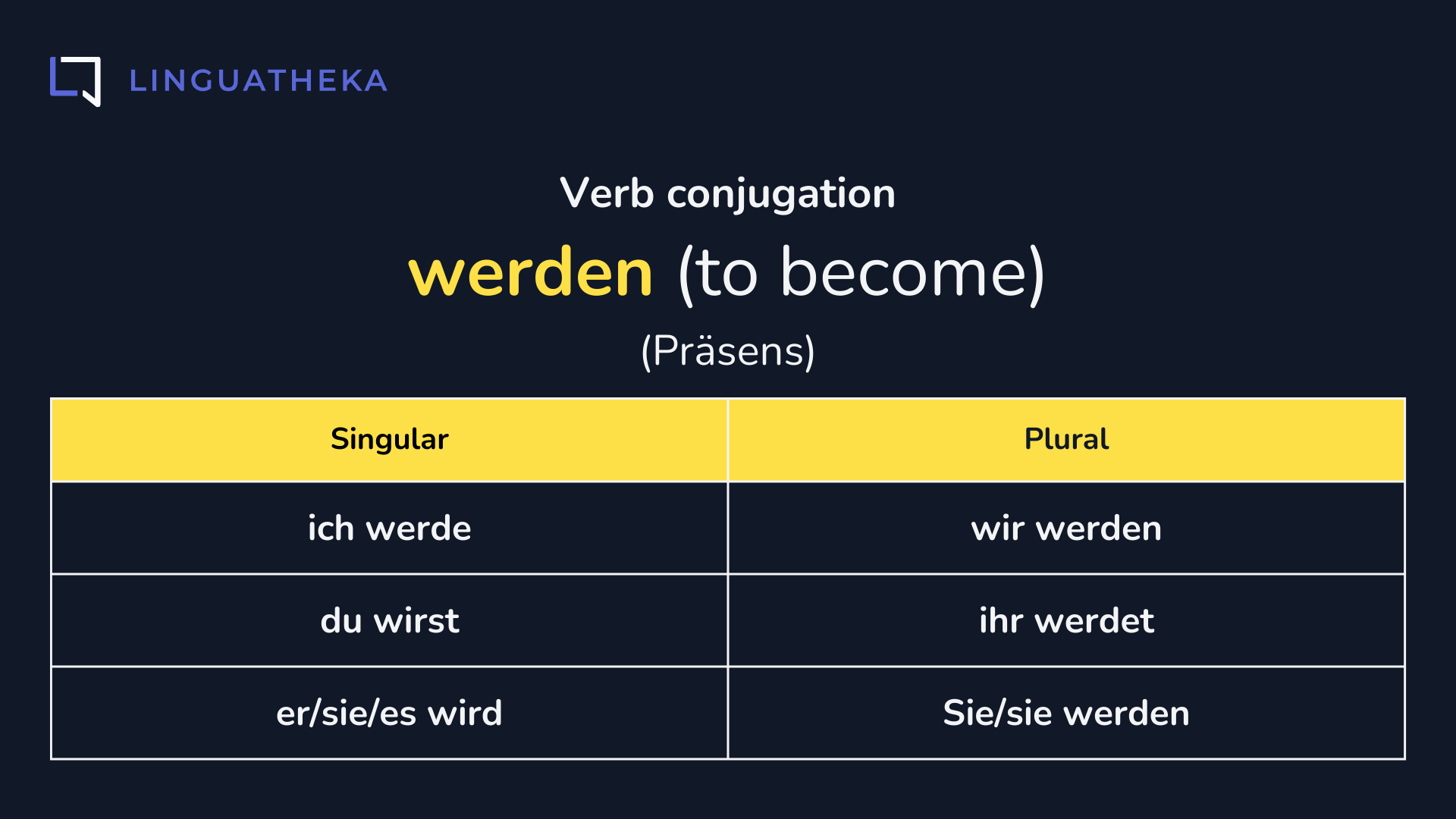
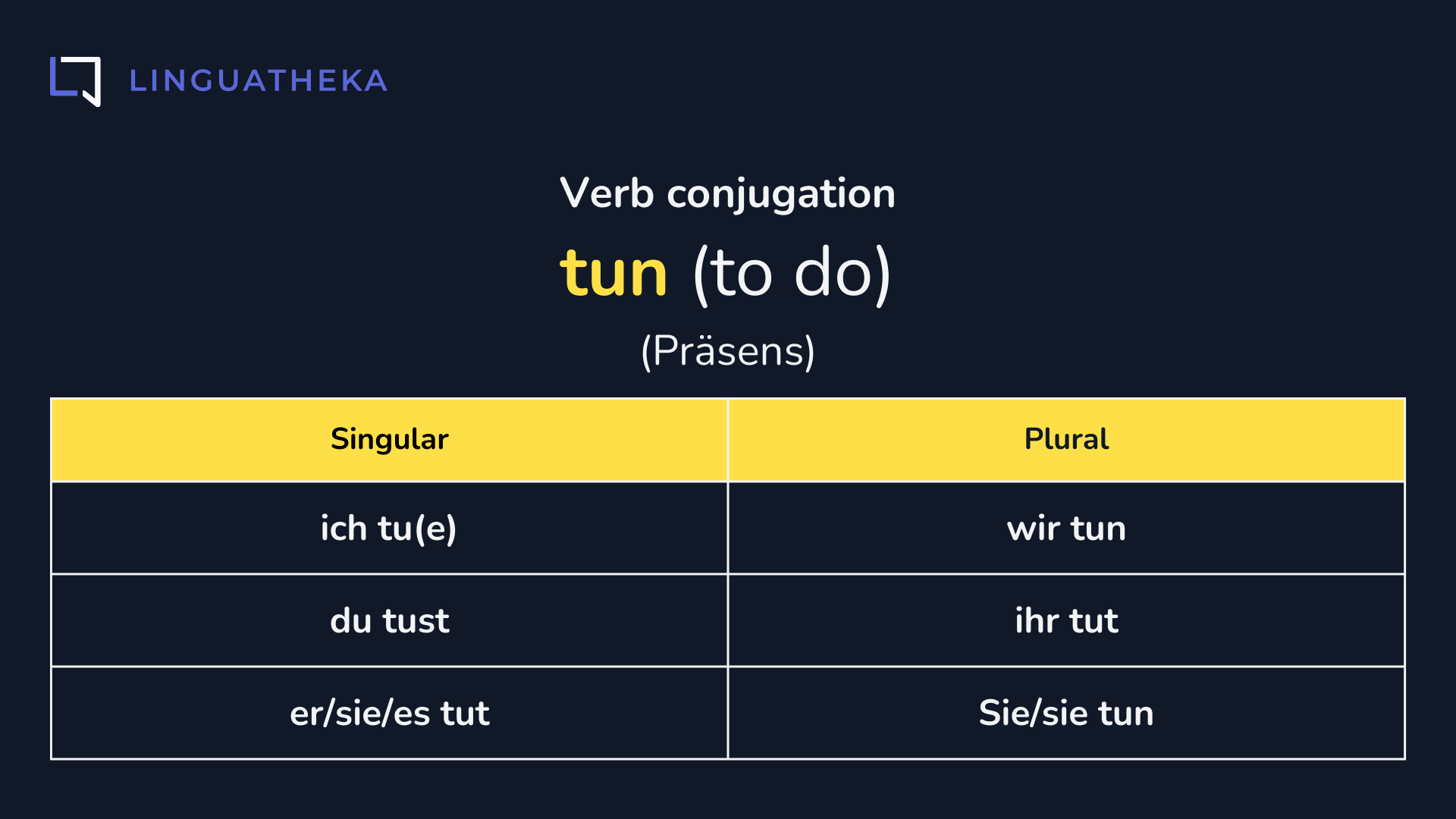
How clear and useful was the article to you?
Start now
days
hours
min
sec
Price €160.00
Language Deutsch, B1.2
Start February 26, 2026
Course Leichter Kurs B1.2
Group #124
Start now
days
hours
min
sec
Price €160.00
Language Deutsch, B1.2
Start February 26, 2026
Course Leichter Kurs B1.2
Group #124



